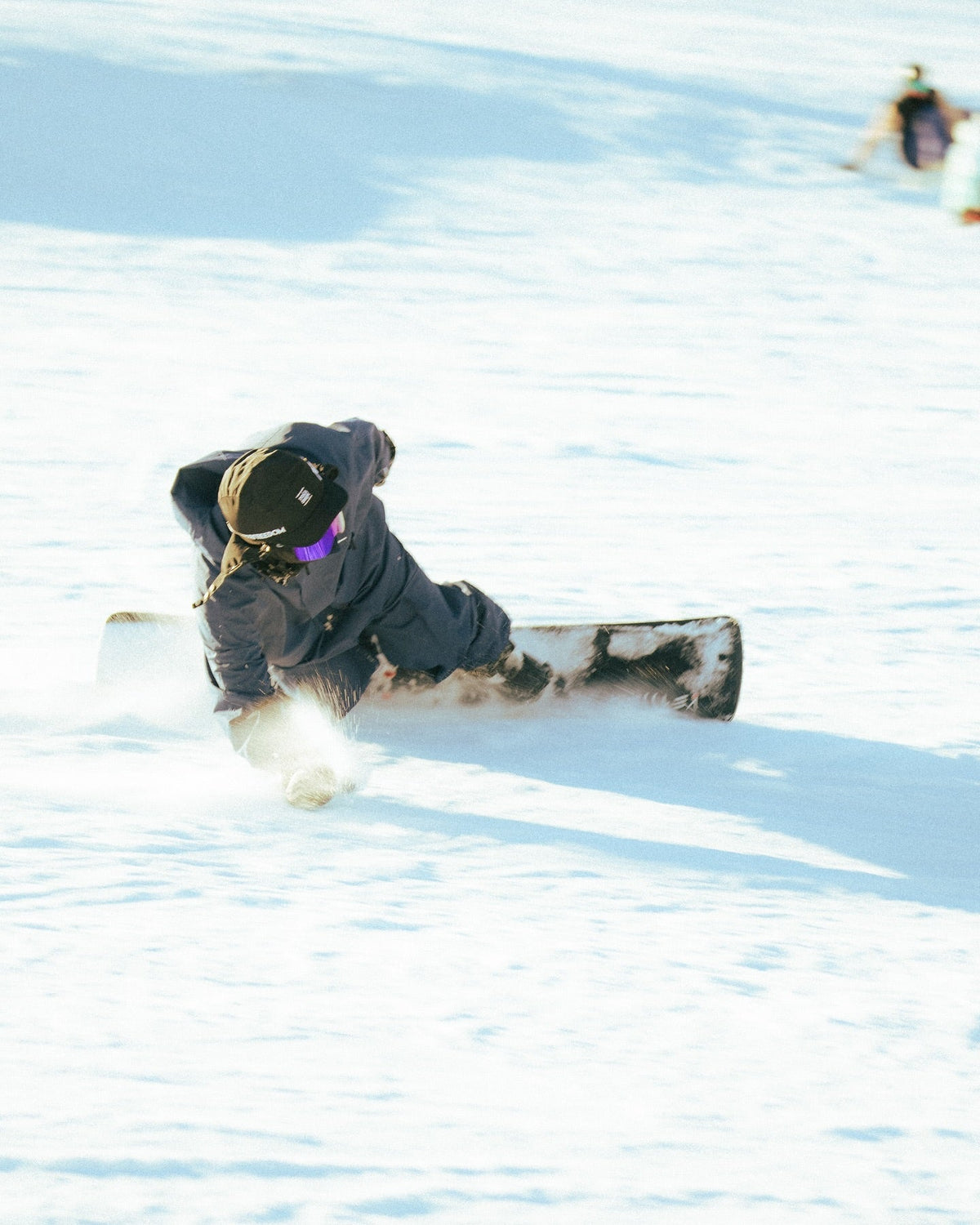
쉘 스키 재킷 대 단열 스키 재킷: 자신에게 맞는 것을 찾으세요
|
4 min
|
4 min
목차
슬로프에서 즐겁고 안전한 하루를 보내려면 올바른 스키 재킷을 선택하는 것이 필수적입니다. 추위로부터 보호막이 되어 따뜻하고 건조하게 유지하면서 움직일 수 있는 자유를 제공합니다. 올바른 재킷은 스키 모험을 놀랍게 만들 수 있지만, 잘못된 재킷은 하루를 망칠 수 있습니다.
하지만 걱정하지 마세요. 우리가 여러분을 안내해 드리겠습니다.
1) 스키 단열 재킷과 스키 쉘 재킷의 차이점을 배우십시오.
2) 당신의 여행에 맞는 것을 찾는 방법.
이 블로그에서는 여러분의 필요에 맞는 최고의 재킷을 선택할 수 있도록 도와드리며, 경사면에서 편안함, 성능, 보호력을 보장합니다.
그들은 몸의 열을 가두고 추위를 막아주는 다운이나 합성 섬유와 같은 내장 패딩이나 단열재를 가지고 있는 경향이 있습니다. 단열 스키 재킷은 경사면에서 당신을 따뜻하게 유지하도록 설계되었습니다.
이것은 당신이 얼어붙는 기온에서도 편안하고 아늑하게 지낼 수 있다는 것을 의미합니다. 스키를 타며 시간을 즐기기 위해 여분의 따뜻함이 필요한 정말 추운 날씨에 완벽합니다.
2. 쉘 스키 재킷이란?
그들은 방수 외피 역할을 하여 당신을 건조하게 유지하고 바람을 차단합니다. 쉘 스키 재킷은 추가 단열재를 추가하지 않고도 바람, 비, 눈으로부터 당신을 보호하도록 설계되었습니다.
내장 패딩이 없기 때문에, 아래에 겹쳐서 따뜻함을 조절할 수 있습니다. 이는 다양한 날씨 조건에 맞게 다재다능하게 만들어, 경사면에서 날씨가 어떻게 변하든 편안함을 유지할 수 있습니다.
단열 스키 재킷
쉘 스키 재킷
자신에게 맞는 스키 재킷을 찾기 위해서는 재킷의 소재와 구조를 알아야 합니다. 합성 또는 다운 단열재와 방수 기능이 있는 외층을 갖춘 단열 스키 재킷은 몹시 추운 날씨에 내장된 따뜻함을 제공합니다.
하지만 GORE-TEX, eVent와 같은 하이테크 소재의 쉘 스키 재킷은 고품질의 통기성, 방풍성, 방수 기능을 제공합니다. 쉘 스키 재킷은 가볍고 단일 레이어 구조와 같이 다양한 기상 상황에서 겹쳐 입기에 이상적입니다. 모든 동전에는 양면이 있으며, 스키 재킷에 맞는 것을 찾는 것이 즐거운 모험의 열쇠입니다.
단열 스키 재킷 :
쉘 스키 재킷:
GORE-TEX ( 미국 ): GORE‑TEX 제품 기술은 재킷, 바지, 신발 , 장갑 등에 사용되는 것으로 유명합니다. 내구성 분야의 현재 리더인 GORE‑TEX는 시장에서 타의 추종을 불허합니다. 책임 있는 성과에 대한 노력의 중요한 이정표는 새로운 GORE‑TEX 제품에 ePE(팽창 폴리에틸렌) 멤브레인을 도입한 것입니다. 이 혁신은 긴 수명을 위해 설계된 고성능, 내구성 있는 제품을 보장합니다.
eVent Fabrics ( 미국 ): eVent Fabrics는 혁신적인 바이오 기반 기술과 PFAS 없는 DWR 코팅을 특징으로 하는 야외 사용을 위한 최고 수준의 보호 및 편안함을 제공합니다. 성능과 지속 가능성을 위해 노력하는 eVent는 업계를 선도하며 모험가들에게 최소한의 환경적 영향으로 신뢰할 수 있는 장비를 제공합니다.
Polartec ( 미국 ): 모든 레이어에서 발견되는 신뢰성을 제공하는 것은 과학, 혁신, 경험입니다. 직물은 매번 신중하고 정밀하게 꿰매고, 꿰매고, 뜨개질하고, 염색하고, 깎았습니다 .
Dermizax ( JP ): Dermizax™는 다양한 통기성을 가진 세 가지 멤브레인을 제공합니다. 원래 Dermizax™는 일반 스포츠에 적합한 방수 통기성 원단입니다. 더 높은 수분 투과성을 가진 Dermizax™ EV 는 하이킹 및 등반과 같은 액션 스포츠에 맞게 제작되어 강렬한 활동 중에 땀 증기를 효율적으로 방출합니다. 극한 조건에서 Dermizax™ NX는 뛰어난 방수 및 통기성을 제공하여 액션 스포츠 애호가에게 이상적입니다. (각 스포츠에 맞게 특별히 제작된 원단을 설계하고 테스트할 수 있는 맞춤형 원사 지원)
심파텍스 (DE): 심파텍스 멤브레인 은 폴리에스터 표면 및 안감 원단에 접합하여 적층되므로 다양한 제품의 광범위한 운반체 소재에 적용할 수 있습니다.
단열재가 있는 스키 재킷 은 일반적으로 쉘 스키 재킷보다 무겁고 부피가 커서 포장하기 어렵고 여행이나 백컨트리 스키에 적합하지 않습니다.
무게 면에서, 단열 스키 재킷은 일반적으로 가벼운 재킷의 경우 1kg(2.2파운드)에서 극한 조건에 맞게 제작된 재킷의 경우 2kg(4.4파운드) 이상입니다 . 쉘 스키 재킷은 일반적으로 더 가볍고, 모델에 따라 무게는 보통 0.5kg(1.1파운드)에서 1.5kg(3.3파운드) 사이입니다 .
자신에게 맞는 스키 재킷을 찾으려면 스키 재킷의 적응성과 레이어링에 대한 지식이 필요합니다. 이 부분에서는 쉘과 단열 스키 재킷의 다재다능함과 레이어링의 기본적 특징을 소개합니다.
단열 스키 재킷
쉘 스키 재킷
단열 스키 재킷은 지속적으로 낮은 기온 (일반적으로 화씨 32도 미만)과 스노보딩, 스노슈잉, 얼음 낚시 및 스키 여행을 시작하기에 적합한 기타 격렬한 활동과 같이 코스가 정돈되어 있는 스키 리조트에 가장 적합한 선택입니다.
쉘 스키 재킷은 백컨트리 스키, 하이킹, 캠핑 또는 등산 등 변화하는 날씨 에 적합합니다. 필요에 따라 적절한 따뜻함과 편안함을 위해 겹옷을 벗거나 더 입을 수 있습니다.
단열 스키 재킷
쉘 스키 재킷
단열 스키 재킷 :
예산 친화적인 옵션 :
중간 범위 옵션 :
하이엔드 전문가 옵션 :
쉘 스키 재킷 :
예산 친화적인 옵션 :
중간 범위 옵션 :
하이엔드 전문가 옵션 :
요약하자면, 단열 및 쉘 스키 재킷은 사용 시나리오와 가격이 상당히 다릅니다. 제 개인적인 경험에 따르면, 다양한 기상 조건에 적응할 수 있도록 두 가지 유형을 모두 준비하는 것이 현명하며, 부피가 큰 장비의 번거로움 없이 추위로부터 보호받을 수 있습니다.